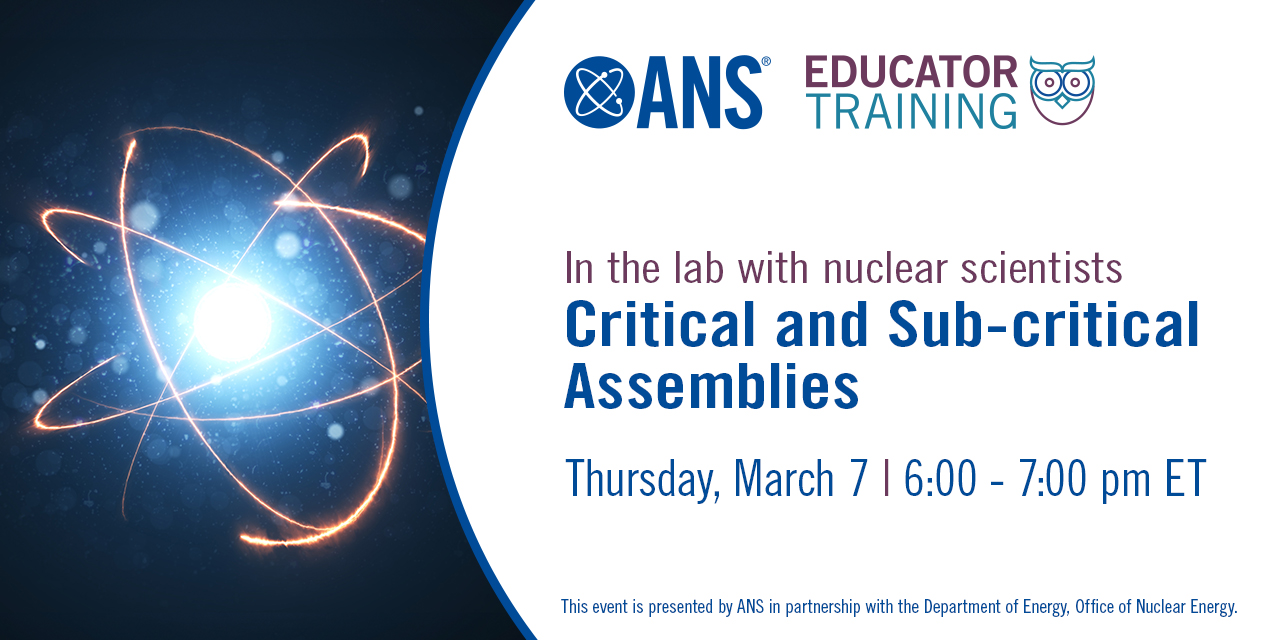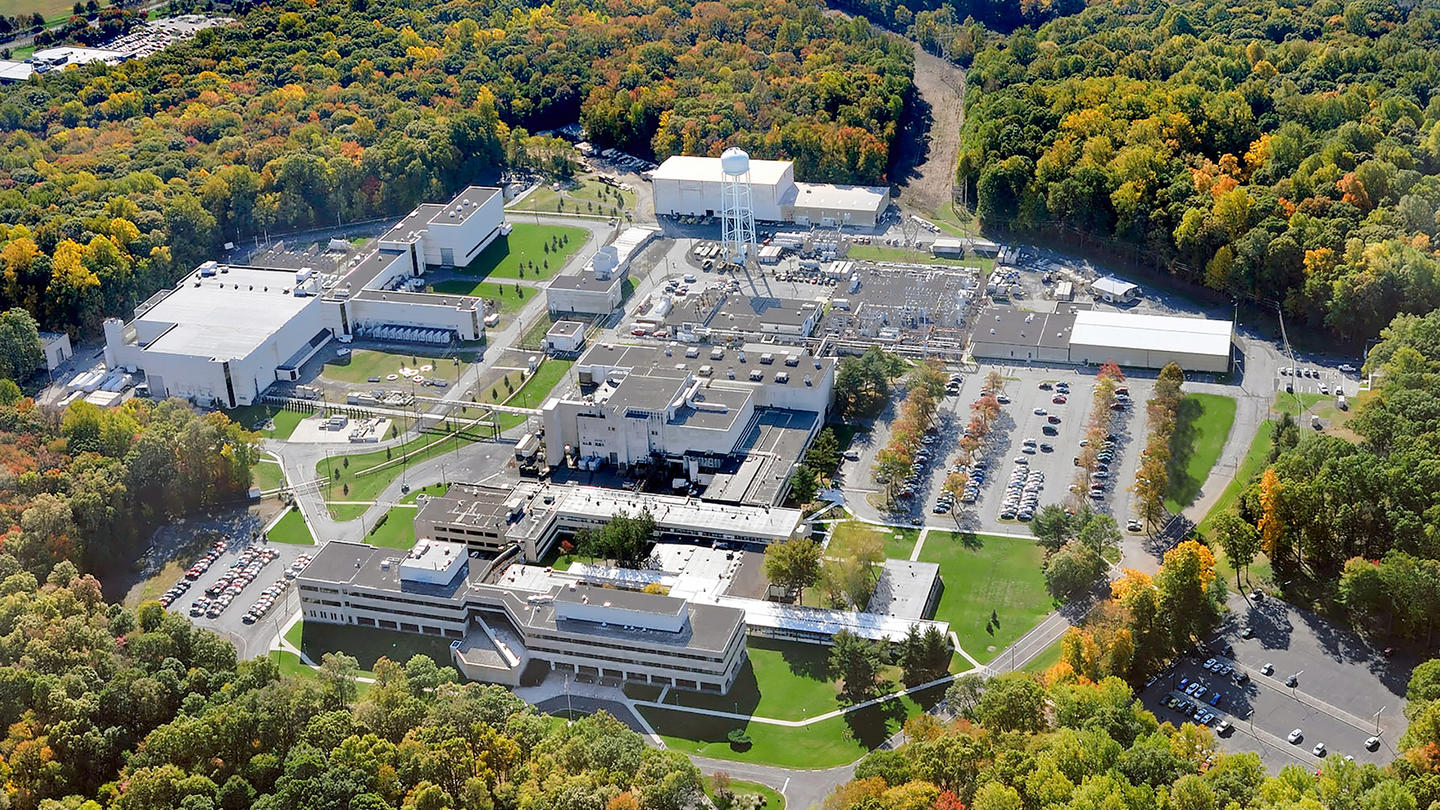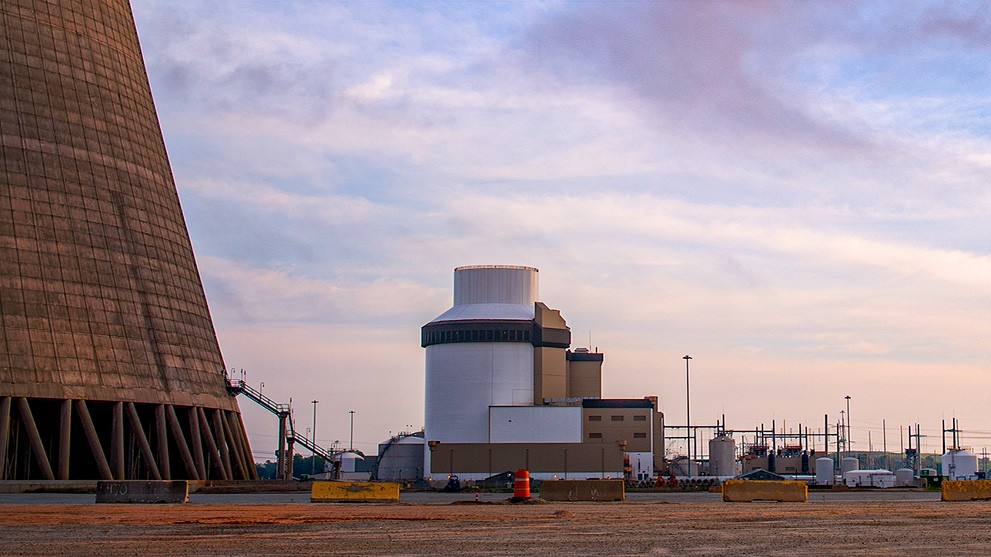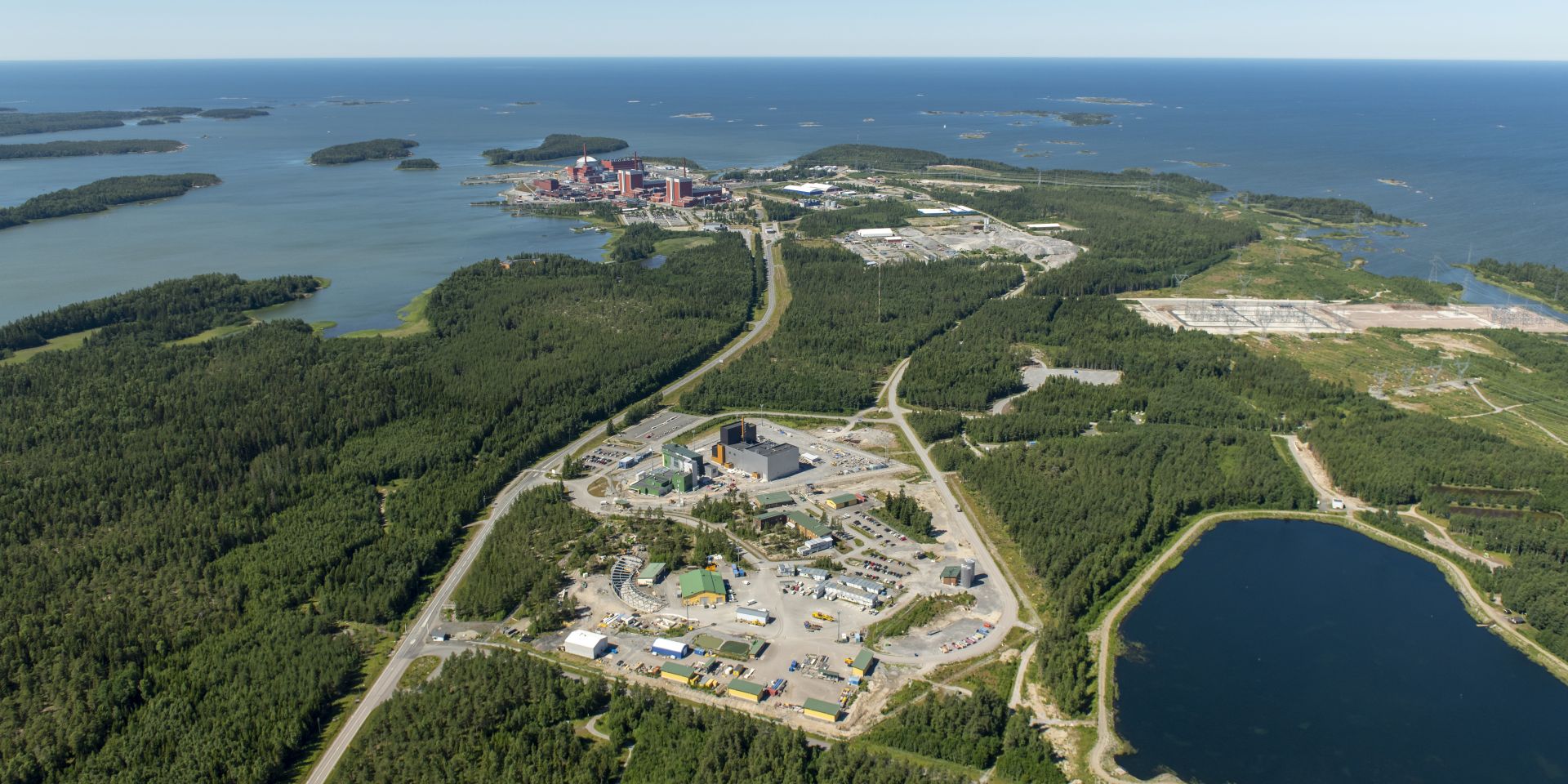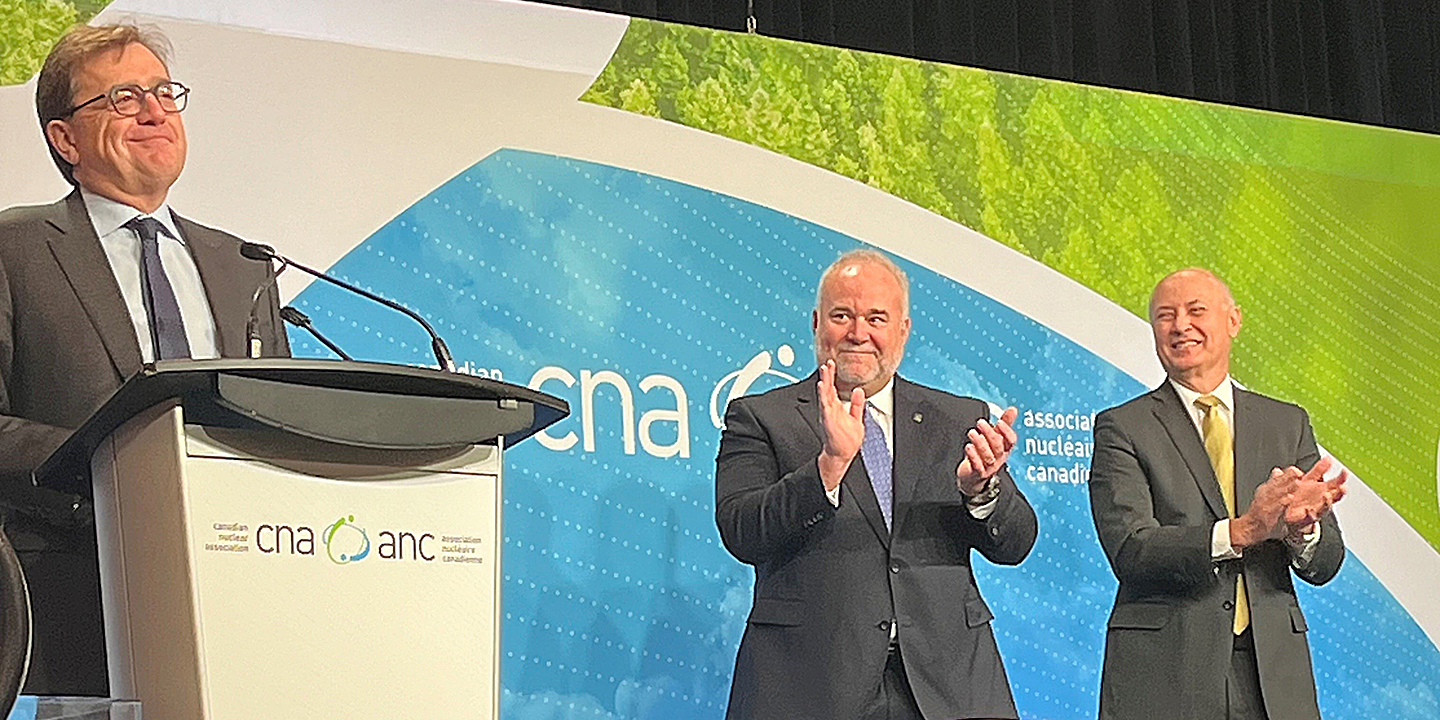Nuclear Regulatory Commission staff pictured at Vistra's Comanche Peak plant in 2021. (Photo: NRC)
Vistra this week completed its acquisition of Energy Harbor Corp., a move the company announced almost exactly a year ago with a $3.43 billion price tag.
Susquehanna nuclear plant in Salem Township, Penn., along with the data center in foreground. (Photo: Talen Energy)
Talen Energy announced its sale of a 960-megawatt data center campus to cloud service provider Amazon Web Services (AWS), a subsidiary of Amazon, for $650 million.
Vladimir Putin (left), Rafael Mariano Grossi (right), with Alexey Likhachev (Image: Kremlin.ru)
International Atomic Energy Agency director general Rafael Mariano Grossi visited Russia this week to discuss the “future operational status” of Ukraine’s Zaporizhzhia nuclear power plant with Russian president Vladimir Putin.
An IAEA task force visited Fukushima in October 2023 to review the safety of TEPCO’s discharge of ALPS-treated water. (Photo: TEPCO)
International Atomic Energy Agency experts have confirmed that the tritium concentration in the fourth batch of treated water released from Japan’s Fukushima Daiichi nuclear power plant is far below the country’s operational limit.
Unit 4 at the Barakah nuclear power plant. (Photo: Nawah)
The Emirates Nuclear Energy Corporation announced last week start-up at its fourth nuclear unit at the Barakah plant in the UAE.
The plant is run by ENEC’s operating and maintenance subsidiary Nawah Energy Company. In the coming weeks, Unit 4 will be linked to the national electricity grid and undergo testing as power production is gradually increased to full capacity.
The Princeton Plasma Physics Laboratory. (Photo: PPPL)
A team of engineers, physicists, and data scientists from Princeton University and the Princeton Plasma Physics Laboratory (PPPL) have used artificial intelligence (AI) to predict—and then avoid—the formation of a specific type of plasma instability in magnetic confinement fusion tokamaks. The researchers built and trained a model using past experimental data from operations at the DIII-D National Fusion Facility in San Diego, Calif., before proving through real-time experiments that their model could forecast so-called tearing mode instabilities up to 300 milliseconds in advance—enough time for an AI controller to adjust operating parameters and avoid a tear in the plasma that could potentially end the fusion reaction.
Southern Nuclear’s Vogtle-4. (Photo: Georgia Power)
Vogtle Unit 4 synchronized and successfully connected to the electric grid on March 1, just two weeks after reaching initial criticality.
This milestone is one of the final steps to completing Southern Nuclear’s long-awaited Vogtle project, adding the second of two large-scale reactors to the United States’ fleet in as many years—the first such additions to that fleet in more than three decades.
The Washington State University Tri-Cities campus. (Photo: WSU)
A new engineering scholarship at Washington State University (WSU) Tri-Cities has been established by Longenecker & Associates for students interested in careers that support Department of Energy missions.
Hanford’s Waste Treatment and Immobilization Plant, also known as the Vit Plant. (Photo: Bechtel National)
The Department of Energy’s Office of Environmental Management once again awarded a 10-year, $45 billion contract to Hanford Tank Waste Operations and Closure (H2C) of Lynchburg, Va., for the cleanup of tank waste at the Hanford Site.
March 1, 2024, 3:03PMRadwaste SolutionsEdited by Tim Gregoire. Photos courtesy of Tapani Karjanlahti/Posiva. The site of the Onkalo deep geological repository near Eurajoki in southwestern Finland with the Olkiluoto nuclear power plant in the background. In 2015, Posiva received a construction license from the Finnish government for the repository, which will be constructed to a depth of 1,300 to 1,500 feet.
The year 2024 is shaping up to be a historic one for Posiva, the waste management organization owned by Finland’s two nuclear power plant utilities, Fortum and Teollisuuden Voima. The company is looking to receive regulatory approval of its operating license for the Onkalo deep geological repository for high-level radioactive waste by the end of the year.
Ontario energy minister Todd Smith (center) and Bruce Power president and CEO Mike Rencheck (right) applaud as Jonathan Wilkinson, Canadian minister of energy and natural resources, announces funding to support Bruce Power’s predevelopment work for expansion. (Photo: Bruce Power)
The Canadian government has announced up to C$50 million ($36.8 million) in funding for predevelopment work to study the feasibility of building 4,800 megawatts of new generating capacity at the Bruce nuclear power plant in Ontario.
HALEU reguli fabricated from downblended high-enriched uranium recovered from legacy EBR-II fuel at Idaho National Laboratory. (Image: DOE)
The Department of Energy yesterday announced a draft environmental impact statement (EIS) on HALEU Availability Program plans to purchase high-assay low-enriched uranium under 10-year contracts to seed the development of a sustainable commercial HALEU supply chain.
Orano CEO Nicolas Maes (left) and SHINE Technologies founder and CEO Greg Piefer shake hands after agreeing to cooperate on a pilot used fuel recycling facility. (Photo: Orano)
Orano and SHINE Technologies have agreed to cooperate in the development of a pilot plant capable of recycling used nuclear fuel from light water reactors on a commercial scale. In announcing the signing of a memorandum of understanding on Thursday, the companies said the selection of a site for the pilot U.S. facility is expected by the end of this year.







